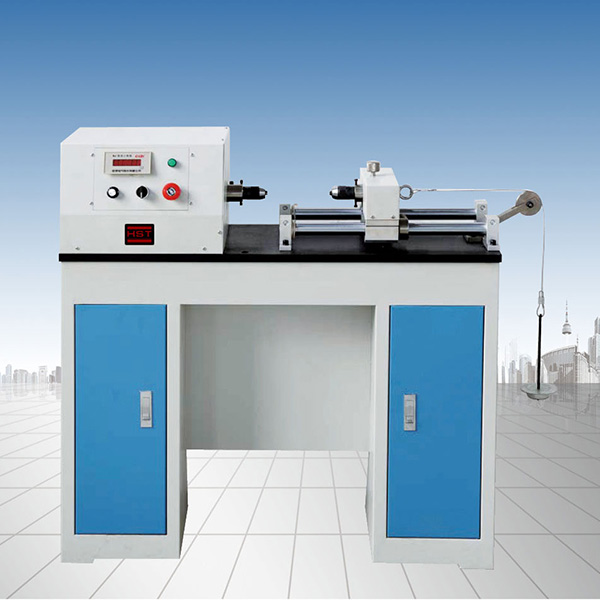Wire torsion test machine

Wire torsion test machine

one,EZ series wire twist testing machineMain uses:
The metal wire torsion testing machine is suitable for measuring the ability of metal wires with diameters (or characteristic dimensions) of 1-10.0 mm to withstand plastic deformation in unidirectional or bidirectional torsion and to display defects on the surface and interior of the wire.
two,EZ series wire twist testing machineprinciple:
One-way torsion: The sample is uniformly rotated by 360 degrees in one direction about its own axis as a twist to a specified number of times or the sample is broken.
Bidirectional torsion: The sample is uniformly rotated by 360 degrees in one direction about its own axis. After one twist to a predetermined number of times, it rotates in the opposite direction the same number of times or the sample is broken.
three,EZ series wire twist testing machineApplication areas:
This machine is mainly used for the mechanical properties analysis of metal wires in mechanical laboratories of colleges and universities, scientific research departments, and industrial and mining enterprises, and is also widely used for online inspection of production units; the main industries include high-speed wires in steel plants, prestressed wire factories, quality supervision, scientific research institutes, road transportation, construction industry, wire ropes, wire cables, copper and copper alloy wires for electrified railways, copper contact wires and other production and use departments.
Four,EZ series wire twist testing machineTechnical parameters:
The diameter of the metal wire can be clamped: 1≤d(D)<10
Space between two fixtures: 500mm
Clamping range: 1-10.0mm
Clamping hardness: >55HRC
Torsion speed: 30, 60, 90, 120r/min (customizable)
Speed error: <±5%
Minimum reading value for the number of turns: 0.1
Working method: Automatic loading
Display method: LCD screen Chinese character menu display
Test machine size (length*width*height): 1360×430×600mm
Test machine weight (net weight): 140kg
Power supply: AC 220V 50Hz
Noise: <50 dB (A)
Assembly quality: Comply with national standards GB/T2611
Packaging and transportation: Comply with the Ministry of Machinery Standard JB/T6147
- Previous article:Portable Richmond Hardness Meter HLN160
- Next article:HB-3000 Brinell hardness meter
Recommended informationNEWS
- [2022-08-26]How to use the universal tensile testing machine?
- [2022-08-26]What are the key points of the lateral deformation test of electronic universal testing machines?
- [2022-08-12]Testing method of metal rods by testing machine
- [2022-08-12]Electronic universal testing machine-Plastic film tensile testing machine
- [2022-08-04]How to install a clamp to save effort
- [2022-08-04]What are the causes of oil leakage in the universal pressure test machine?
- [2022-08-04]Tension machine
- [2022-07-29]Staff must conduct necessary inspections on the different structures and parts of the fatigue testing machine
- [2022-07-29]In practical applications, friction between parts is inevitable.
- [2022-07-29]Methods to avoid positioning errors of electronic universal test machines
- [2022-07-29]What errors are prone to occur when using the fatigue test machine
- [2022-07-29]Performance characteristics of electronic universal testing machine and preparations before operation
- [2022-07-20]What are the safety and service life of the woven bag tensile tester?
- [2022-07-20]Several categories of tension machine sensors
- [2022-07-20]Calibration of universal testing machine sensor
- [2022-07-20]Introduction to technical problems of material tensile testing machine
- [2022-07-15]Handling of displacement system failure of tensile test machine
- [2022-07-15]Low temperature impact tester


















